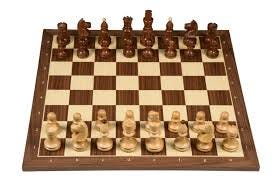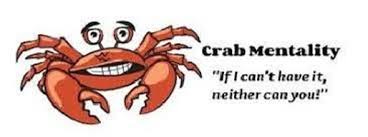Zero-Sum Thinking and Scarcity
Reframing the way we think about competition, exchange, and opportunity.
If you’ve ever played a sport, competed in some kind of tournament, or argued with someone over who gets the last slice of cake, you’ve actively taken part in a zero-sum game.
What is a zero-sum game, you ask? It’s a situation where one party’s gain directly results in another party’s loss. The concept comes from the study of game theory, which is a subfield of economics concerned with creating mathematical models around strategic interactions. No overall wealth is created or destroyed in zero-sum games, but rather transferred from one competing party to another.
Zero-sum games can take place with perfect or imperfect information - in games with perfect information, every player knows the results of all previous moves (think chess & tic-tac-toe). In games with imperfect information, players don’t know all previous moves (think rock-paper-scissors & Battleship). Information symmetry is present in games with perfect information, meaning that all parties have all available information and can make decisions accordingly, while parties have information asymmetry (differing strategic knowledge) in situations with imperfect information.
Scarcity, Crabs, and Buckets
Emotions like envy and extreme greed are often derived from zero-sum beliefs. Since we’re accustomed to competition with others, it’s not uncommon to fall into this world view even though most circumstances in life are not truly zero-sum.
Ever heard of the “crab mentality” or the phrase “crabs in a bucket” in casual conversation? It was coined to describe situations where people actively try to prevent others from getting into favorable positions, even when those striving for more are not causing harm. This came from the observation that when crabs were captured and piled into buckets together, the group would pull down any individual crab that attempted to climb out, ultimately resulting in the entire population’s continued captivity. Likewise, when one person in a social group begins to do exceedingly well, others may try to undermine their achievements.
Crab mentalities result from scarcity thinking and unhealthy forms of competition. This mindset leads to ruthlessly competitive social environments, encouraging behavior that aims to undermine others in attempts to preserve one’s own perceived share of limited resources.
If you’ve ever worked with clients, employers, teammates, or colleagues who view the world as zero-sum, you’ve likely had frustrations in trying to arrive at mutually beneficial outcomes. Withholding necessary information, avoiding or delaying payment for services, dishonoring contracts, going on smear campaigns, and being inconsiderate to others are common forms of behavior in environments that operate around this damaging belief system.
Crabs hold everyone captive to a negative environment.
Reframing to Abundance and Encouragement
We need to understand that things like wealth, health, knowledge, relationships, and happiness are not zero-sum games. Simply put, when someone makes progress or gains in these areas, they are not taking away from someone else. Healthy competition allows everyone to succeed, while unhealthy competition is characterized by individuals or groups attempting to tear down the progress of others.
The wealth, intellect, work ethic, beauty, personality traits, and accomplishments of others do not take away from those of your own. Once you truly begin to think in abundance, you start to see life as a collaboration, not a tiresome competition.
Consider that proper business dealings ensure that all involved parties receive benefit. One party receives money to pay their expenses and continue operating their business, while another receives a good or service that improves their quality of life.
Abundance mindsets are characterized by views that emphasize:
Exponential growth
Ingenuity
Opportunity
Flexibility
Selflessness
Continuous learning
Supportiveness
Celebration
Congeniality
Learn to genuinely be happy for the success of others, and let it inspire you to become a better version of yourself. We’re all contributing members of an ecosystem that is much, much bigger and more important than just ourselves.
To wealth and health,
Jared





Great read, thanks for the perspective here. I've often struggled getting people to change their mind and get out of stagnant worldviews, do you have any thoughts about how to get people into a growth mindset?